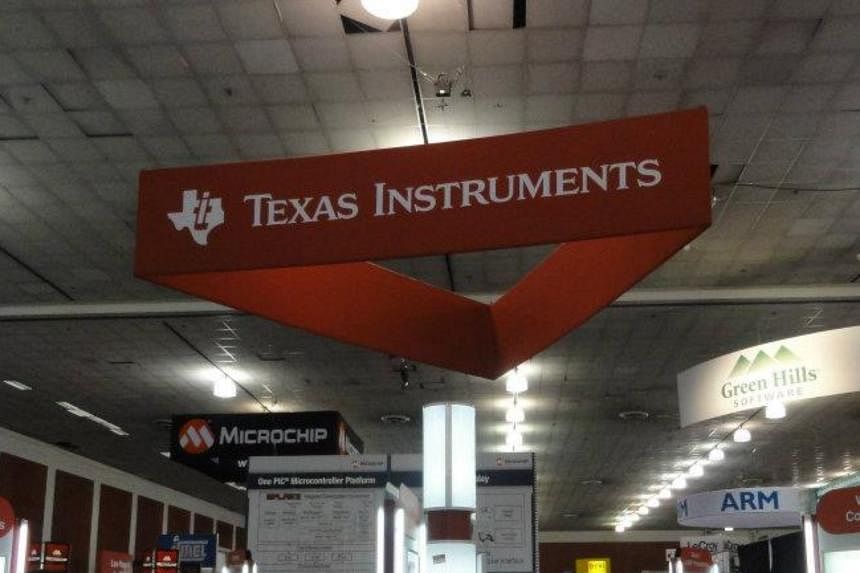SAN FRANCISCO - Texas Instruments gave a bullish revenue forecast for the current quarter, indicating that a slump in demand for industrial and automotive components may be easing.
Sales in the period will be as much as US$3.95 billion (S$5.38 billion), the company said in a statement on April 23. Analysts had estimated US$3.78 billion, according to data compiled by Bloomberg. Profit will be US$1.05 to US$1.25 a share, versus a prediction of us$1.17.
The report suggests that customers have begun to resume ordering chips after working through stockpiles of components – a good sign for the broader industry. Texas Instruments, which has the widest customer base among chipmakers, serves as a bellwether for confidence in the economy – across industries ranging from space hardware to consumer electronics.
Most of the customers in the company’s biggest segment – industrial equipment makers – have completed their inventory reduction efforts, Texas Instruments said. But some are still working through the process.
That has made for an uneven recovery in demand, chief financial officer Rafael Lizardi said in an interview.
“Some end markets are still going down, and there are some that are behaving differently,” he said. “Ninety days ago, all end markets in industrial were going down.”
Still, the company is not reading too much into these early signs, which could be false indicators, he said.
The chipmaker said it would continue its policy of not making broad predictions about future demand.
The forecast followed more than a year of shrinking sales. Revenue in the first quarter declined 16 per cent to US$3.66 billion, marking the lowest level since 2020.
The stock had lagged behind a rally by the Philadelphia Stock Exchange Semiconductor Index in 2024.
Investors have poured money into companies such as Nvidia, rewarding them for the surge in orders related to artificial intelligence computing.
Texas Instruments, meanwhile, is the biggest maker of analog semiconductors and embedded processors. Its products perform simple but vital functions, such as converting power to different voltages within electronics.
Though some of its chips are used in the same machinery as Nvidia’s processors, many more of its products perform more prosaic roles in household electronics, factory machinery and vehicles.
Such chips generally require less advanced production techniques than digital products, but the company has embarked on an ambitious plan to revamp its manufacturing facilities.
As part of that effort, Texas Instruments will all but end outsourcing of production.
That should give Texas Instruments an advantage over competitors, particularly nascent ones in China, the company has argued.
It is budgeting about US$5 billion a year for new plants and equipment through 2026, an outlay that is weighing on profitability.
“That is where we have to fight,” Mr Lizardi said. “China is the most competitive market. That’s where we have the best and most agile competitors.” BLOOMBERG

